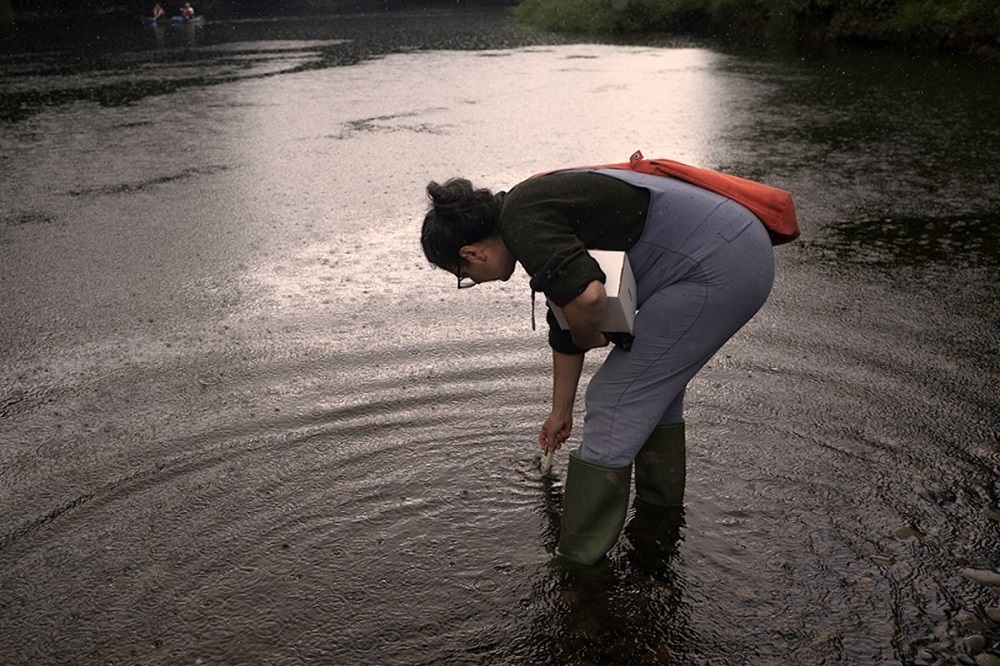Major research project launched to look at how water quality of rivers can be improved

New research will examine the impact of livestock farming on rivers in Wales as part of a major UK-wide study
Feshwater ecosystems are facing multiple pressures from a cocktail of pollutants, including chemicals, microplastics, pharmaceuticals, invasive species and land management practices.
UK Research and Innovation (UKRI) says that as a result, the majority of UK rivers fail to have good ecological status.
Only 14% of waterways in England, 46% in Wales, 50% in Scotland and 31% in Northern Ireland reach the threshold.
Poor water quality can result in loss of life in the rivers, threaten the structure and stability of the food chain, be dangerous for bathing and lead to enhanced drinking water treatment needs and costs.
Researchers have been awarded funding by Natural Environment Research Council (NERC) and Defra from the £8.4 million Understanding changes in quality of UK Freshwaters programme.
Ecosystems
They will investigate how pollutants enter, leave and interact with rivers and supporting ecosystems.
The study will also determine how the movement of pollutants will be modified with changes in the water cycle, and work towards creating better tools to monitor and measure pollution.
Studies across Wales, Scotland, Northern Ireland and north and west England will look at how livestock farming, its waste and sewage, and mitigation practices changes water quality.
Earlier this week a new study of the Wye and other rivers in areas of intensive livestock farming found they contain antibiotic-resistant “superbugs” which could pose a threat to human health.
Research on the River Thames and Bristol Avon field sites will examine how freshwater pollutants affect aquatic invertebrates and plants.
A River Almond site in Scotland will investigate how interactions will occur between changes in climate and land use, and emergent contaminants in rivers.
As well as studying how climate change impacts water quality in rivers, the projects will also look at how concentrations of multiple chemicals vary in freshwaters, using nine field catchments in Yorkshire – Rivers Aire, Calder, Derwent, Don, Nidd, Ouse, Swale, Ure and Wharfe.
The programme’s Freshwater Quality Champions, Professor Pippa Chapman and Professor Joseph Holden, from the University of Leeds, said: “There are huge water quality pressures on UK rivers. These are likely to be exacerbated with climate change.
“Through collaboration between researchers, water and land managers and policy-makers, the programme will help ensure that our rivers and other waterways are more resilient to future climate and land-use change.”
Support our Nation today
For the price of a cup of coffee a month you can help us create an independent, not-for-profit, national news service for the people of Wales, by the people of Wales.






Perhaps stopping sewerage and other nasties into our Rivers would be a good start? Or is that too much like common sense?
Can we monetise this for our shareholders?….
DCWW can’t. Severn Trent and United Utilities can
Way too much sense there. Corporate dumping of human waste is galloping ahead. Permitting industrial scale agriculture is another big threat – poultry and dairy being the most obvious sectors. There is no good reason for these newer types of farming practice other than it panders to the greed of the supermarkets and processed food industries.
The authorities and dischargers already know what needs to be done. Treat your effluent and cut your phosphate levels. This exercise merely kicks any action to do something tangible now into long grass. Water companies or anyone discharging waste into watercourses have to (here read should) comply with the consents (water quality standards) set by the NRW or EA. When they breach the levels, they should then be held to account. Why arn’t they? Three issues with enforcement. One, water companies self regulate themselves. Two, Truss (remember her?) drastically cut the EA’s funding. So have the WGov for the NRW.… Read more »